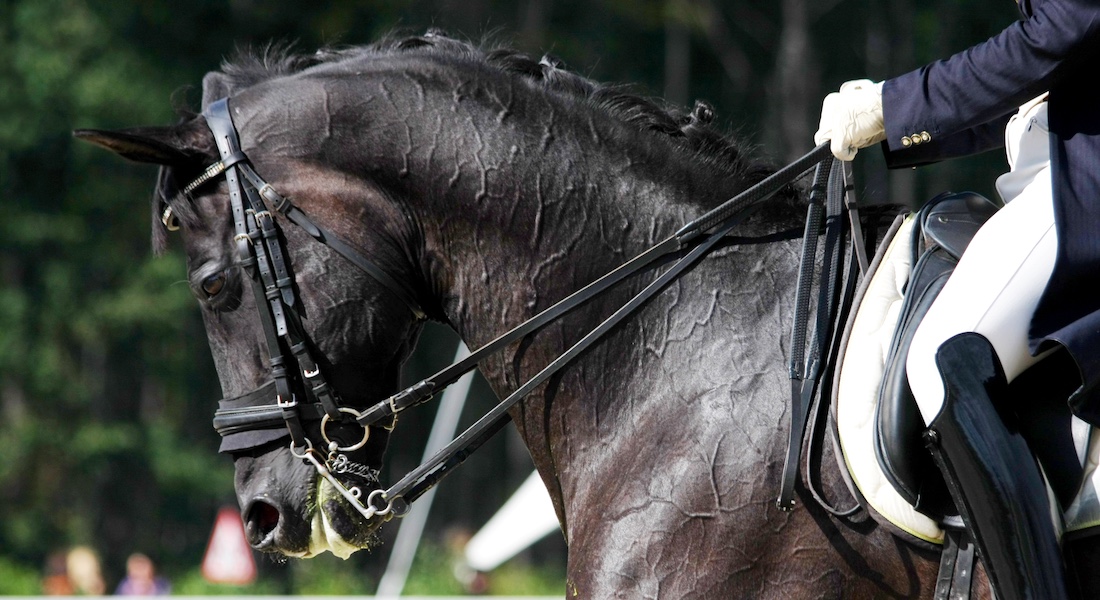Oral behaviour during riding is associated with oral lesions in dressage horses – A field study

Christensen, J. W. & Uldahl, M. (2024)
Applied Animal Behaviour Science. Elsevier
Abstract
The welfare of sports horses is debated both within and outside the horse community. One welfare concern is the frequent occurrence of oral lesions. Lesions may be caused by inappropriate training and ill-fitting equipment. Increased knowledge of behavioural signs of pain, discomfort and frustration (often jointly labelled ‘conflict behaviour’) in horses can increase awareness by riders, trainers, officials, and competition judges, which is a first step towards reducing the occurrence. This study included 11 warmblood dressage horses competing at upper national level (Intermediaire I). The horses were randomly selected (from a total of 22 horses) for an unannounced inspection for oral lesions immediately after leaving the dressage arena. Five of the 11 horses had abrasion of the skin and/or mucosa at one or both commissures of the lips and were eliminated from the competition according to the rules of the national equestrian federation. An experienced observer who was blind regarding the outcome of the inspection, scored behaviour in the 11 horses from official video recordings available online from the event. The frequency of mouth opening ranged from 5 to 59 times in the 11 horses. Horses with oral lesions had a significantly higher frequency of mouth opening compared to horses without oral lesions (t-test, mean ±SEM; lesions: 34.6 ±6.7 vs. no lesions: 12.2 ±2.4, t(9) = 3.4, P = 0.008). The frequency of other conflict behaviours did not differ significantly between the groups (e.g. tail swishing: MWU-test, median [25;75 %]; lesions: 25 [14;27] vs. no lesions: 10 [6,24], U = 7.0, P = 0.18). It is concluded that oral behaviour may be a useful indicator of oral lesions. Further studies are needed to investigate behavioural signs of discomfort and pain in riding horses, as behaviour can be an early predictor of compromised welfare. Increased awareness of subtle behavioural signs is therefore an important first step towards improved sports horse welfare.
Oral behaviour during riding is associated with oral lesions in dressage horses – A field study (URL)
